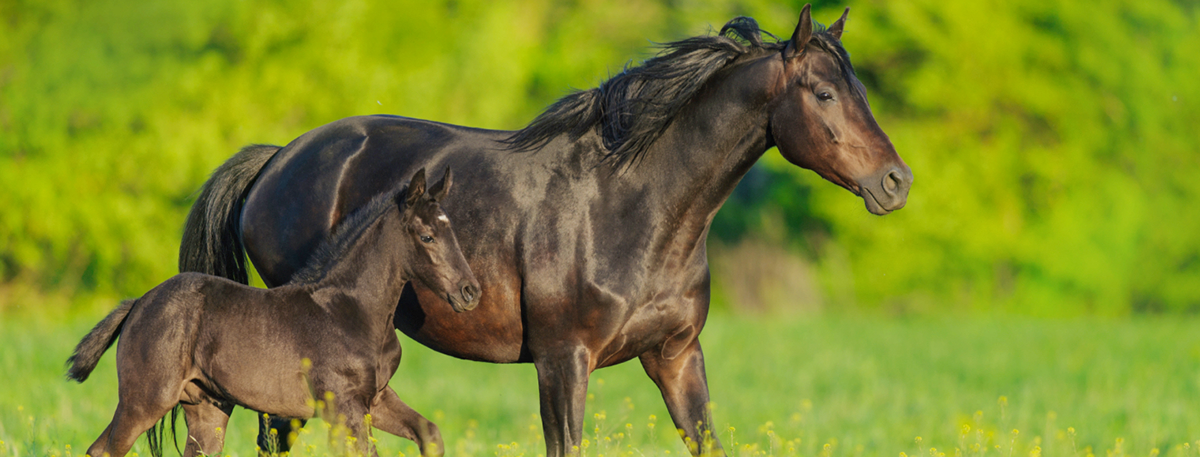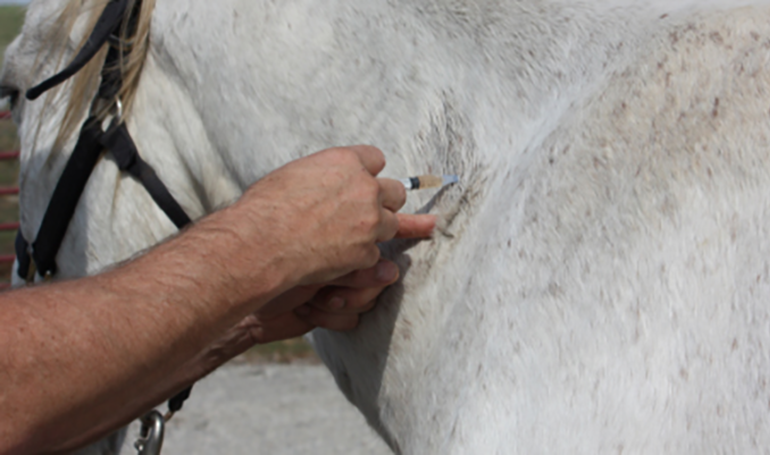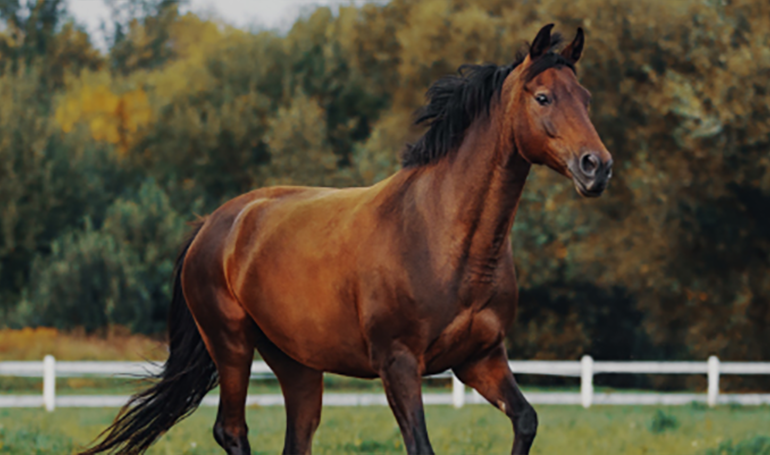
Mare Care
Overview
The First Step in Raising a Healthy Foal
is a Healthy Mare.
Anyone who breeds horses knows that caring for a broodmare is completely different from any other horse. With every decision, two lives are affected, and each decision must be carefully evaluated. Attention to your mare’s healthcare starting before she is even bred is the best way to ensure your foal lives up to his genetic potential.
Your mare’s body goes through a lot in order to grow and deliver a foal that weighs on average, 10 percent of her body weight. During her 11+ months gestation, you need to gauge what’s going on inside by how your mare looks on the outside.
Prior to breeding, your mare should be in good weight and current on essential vaccinations and deworming. Routine dental prophylaxis and foot trimming should also be up to date.
A breeding soundness exam may be in order for older mares, maidens and mares with a history of breeding or foaling problems. For mares at risk for early pregnancy loss, you may also want to routinely monitor blood progesterone levels during the first trimester. Your veterinarian can send blood samples for analysis. Healthy mares with viable pregnancies have progesterone concentrations above 2 ng/ml.
Get Mare Care Resources

Download Resources to keep track of key vaccination and deworming milestones to help you work with your veterinarian to keep your pregnant mare healthy.

Breeding – The Goal of Getting in Foal
There’s nothing more gratifying for a breeder than a promising new foal hitting the ground healthy. A successful outcome starts months prior with the initial breeding and identifying the time of ovulation is crucial for a successful outcome.

Pregnancy – What to Expect in Each Trimester
Once your mare is in-foal you’ll note several important milestones over the course of the 11+ month gestation, including important action items to discuss with your veterinarian.

Vaccinations – Protect your mare’s unborn foal.
There’s a lot at stake when your mare is pregnant. Not only do you want to keep her healthy and strong. You also want to protect the life of the unborn foal. Talk with your veterinarian early on about a vaccination plan for your broodmare.

Deworming the Pregnant Mare
Strategic deworming is another essential ingredient of preventive health care. The major gastrointestinal parasites of concern in the mare are large and small strongyles and, in some instances, tapeworms. Another parasite, Strongyloides, can be passed from dam to foal in the milk.

